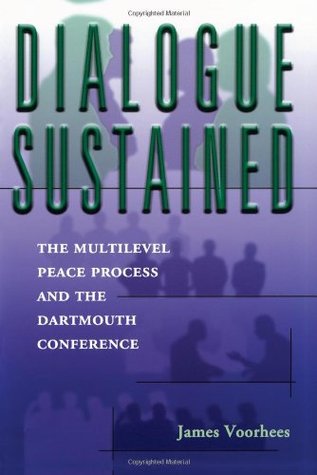

 |

|

The average rating for Dialogue sustained based on 2 reviews is 4.5 stars.
Review # 1 was written on 2013-10-12 00:00:00 Paul Mathews Paul MathewsThe main reason that I picked up this book is because it focuses on a significant political figure only after his time in office. Thus, more of a "retirement" period, so to speak. Although, in Acheson's case, he did not seem to be retired at all. Acheson left office as Secretary of State in January 1953 and for the next 18+ years managed to stay extremely active: serving as foreign policy chair of the Democratic Advisory Council; writing endless magazine and newspaper articles; serving as an unofficial adviser to Presidents Kennedy, Johnson, and Nixon; and doing some legal work as well. Acheson was preoccupied with European affairs, particularly as it concerned NATO and - at that time - West Germany. He was an expert in these areas, yet as in basically all subjects, he held strong views and tended not to brook much opposition. Frequently, this Euro-centrism seemed to diminish his standing among officials in the Kennedy, Johnson, and Nixon administrations. He viewed the Vietnam War as more of a sideshow until it could no longer be ignored, and even then he wanted U.S. participation ended quickly so that the country could focus on - what else? - matters in Europe. He was part of President Kennedy's Ex-Comm to help navigate the Cuban Missile Crisis. Fortunately, Acheson's views were not adhered to: he was the strongest hawk of the group - advocating a bombing mission to destroy all of the Soviet missiles that had been installed on the island. This was the most tense moment in the entire Cold War; one can only imagine how disastrous things would have turned out had JFK listened to Acheson here. Brinkley does a good job of displaying Acheson's formidable skills as a foreign policy expert and quotes liberally from his voluminous correspondence. This approach works well as it allows the reader to continually see what Acheson was thinking. Brinkley is neither fawning nor overly critical of Acheson. Overall, I came away with the impression that - at least politically - he allowed policy disputes/worldview differences to color his perception of certain people. He seemed to truly hate John Foster Dulles, his successor as Secretary of State, remarking when the latter died that he was glad that Dulles was now under ground! His appraisal of UN Ambassador Adlai Stevenson was not quite as mean, yet still biting. One subject that Brinkley does not delve into is Acheson's lengthy correspondence with Harry Truman. We read many of Acheson's letters to Truman, but none coming back to him from the former president. Acheson's family is rarely mentioned. His legal work is alluded to only a few times, and then in rather vague terms with the exception of his representing Cambodia in a dispute with Thailand. Some occasional personal looks at Acheson would have been most welcome. The reader gets a solid sense of what he was like as a former Secretary of State, but is left wondering what he was like outside of the foreign policy circle. Grade: C+ |
Review # 2 was written on 2018-07-15 00:00:00 Derek Dawson Derek DawsonFantastic book. Gleijeses wrote this because he was curious about Cuba's intervention in Angola, which is exactly why I chose to read it, but he finds the Cuban foreign policy of the era was quite consistent beyond just Angola. He makes a point of writing the history a Third World country, arguably a loser in the Cold War, in a way that does not view it solely from a US perspective. He wrote a history for the losers, essentially, and the Cuban interventions in Africa were far more idealistic and revolutionary than the motives of the US or USSR in any proxy war. Parts of this are very long and detailed attempts to put together a military history which was poorly recorded. Gleijeses had unprecedented access to some classified Cuban archives, which is fascinating at times and tedious others. Nonetheless he is a very good writer, the story is well told. My take away from this is how Cuba took huge economic and political losses for the goal of spreading the ideology which they believed would save their fellow Third World nations. In light of stagnant totalitarianism on the island, solidarity with Africa may be Cuba's greatest unsung legacy. |
CAN'T FIND WHAT YOU'RE LOOKING FOR? CLICK HERE!!!